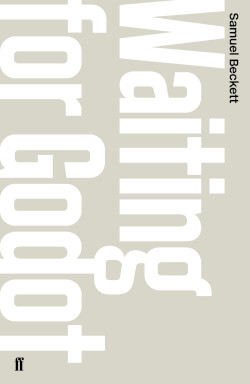Samuel Beckett, Waiting for Godot, 1949

Famously described as a play in which ‘nothing happens, twice’, Samuel Beckett’s Waiting for Godot is in fact packed with incident – and has happened far more than twice. One of the world’s best-known and most frequently staged works of modern drama, the play’s reputation testifies to its enduring relevance and mystery. But that reputation can all too easily come between readers and the text, or spectators and the performance.
Setting some of those impediments, including Beckett’s charismatic literary stature and the common assumption that Godot teaches us about the absurd nature of the universe, this masterclass will instead ask some hard questions of the text, its iconic productions, and its treatment of seemingly universal themes.
In so doing, it engages with what is distinctive about Godot as a work of literature and theatre: an apparently revolutionary play that displays a militant commitment to the classical dramatic unities of action, place, and time; a relentlessly downbeat drama that is one of the funniest in the modern canon; a timeless classic that directs an unblinking gaze at the post-war moment of its creation; and a staple of crisis situations that may say as much about the ‘Godot complex’ of theatre-makers themselves as it does about theatre’s capacity to salve wounded souls.
Whether you have a well-thumbed copy of the play to hand, have sat through many hours of the stage play, or know it so well by reputation you have never felt the need for either, this lecture will offer a fresh take on a classic as weather-worn as its characters. Perhaps, together, we will even find the Godot we have been waiting for. Let’s go.

Associate Professor Paul Rae
Paul Rae is Associate Professor in Theatre Studies and Head of the School of Culture and Communication in the Faculty of Arts. He teaches and researches contemporary theatre, and the performance cultures of the Asia-Pacific region. His book Theatre and Human Rights (2009) is a standard reference on the topic, and his more recent Real Theatre (2019) advances what one eminent reviewer has described as ‘a general theory of performance’, and another ‘a philosophy of ordinary theatre’.
He is currently writing two books: Performing Islands draws on case studies from Indonesia, the Philippines, Singapore, and Kiribati to explore the relationship between island environments and the performances that happen there; Mousetraps: Adventures in Theatrical Capture looks at a range of plays, from Hamlet to Agatha Christie’s Mousetrap, to ask how and why the theatre experience is so captivating.